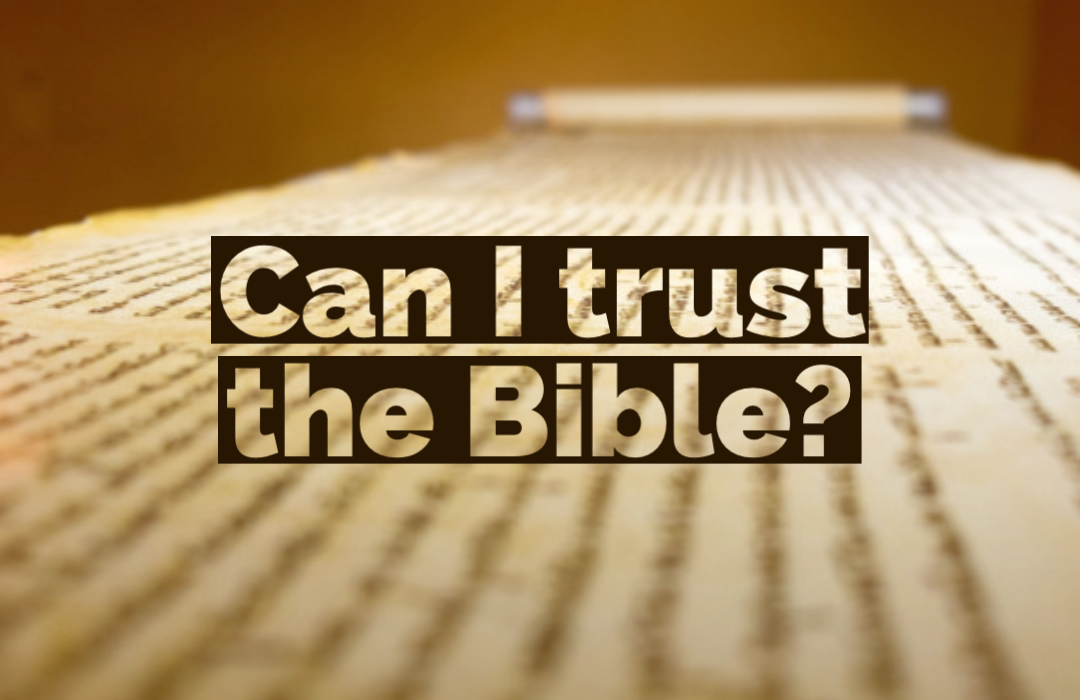Can I Trust the Bible (Part IV): Which Bible?

(This blog post is Part IV in the series "Can I Trust the Bible?" Read the Introduction and Parts I, II, and III.)
In the last three posts, we saw that God uses his word to create, judge, and save; that he graciously communicates with human beings using human words; and that since the time of Moses, he has made provision for his words to be committed to written Scripture and preserved down through the ages. God’s written Word is a priceless treasure: it reveals him perfectly, and powerfully shows us how to live in relationship to him.
The priceless value of Scripture undergirds the oft-repeated warning that we not add or take away from it. Moses repeatedly warns God’s people not to add or take away from the teachings of Deuteronomy (Deuteronomy 4:2; 12:32). God solemnly charges the prophet Jeremiah to speak whatever he tells him, and “do not hold back a word” (Jeremiah 26:2). John actually pronounces a curse on anyone who takes away or adds to the prophecy of the book of Revelation (Revelation 22:18-19). Clearly, it’s important to God that we pay attention to all of his words, and only his words. To ignore any part of Scripture would be to rebel against God’s lordship, and to add anything to it that does not belong would be to put words in God’s mouth.
The Question of Canon
Here’s the problem: Not everyone who claims to know God carries around the same Bible. The Bible I bring into the pulpit with me has 66 books (39 in the Old Testament, and 27 in the New Testament). Most Roman Catholics believe the Bible has seven additional books, and many Eastern Orthodox Bibles have even more than that. Others have suggested that books like I Enoch or the Gospel of Thomas should be treated with the same authority as Scripture. So who's right?
The question of which documents belong in the Bible is a matter of canonicity or canon. The word canon comes from a Greek word that means “rule,” or “standard.” In other words, which documents meet the “standard” of being called Holy Scripture? If we believe that the Bible is just a collection of important, influential documents foundational to Jewish or Christian religion, then the question of canonicity is—practically speaking—not all that important. But if we accept the Bible’s claim that it is the Word of God, then the question is of tremendous importance. The fact that not all “Bibles” include the same books means that someone is either adding to or taking away from the Word of God (whether they intend to do so or not).
Scripture’s Self-Authentication
So how do I know which books belong in the Bible and which are merely the writings of a human being? The very first thing you need to remember is that God has the ability to validate his own Word. There is no expert or outside authority that authenticates God’s message; he takes care of that himself. As Old Testament scholar Paul D. Wegner said in his excellent book, The Journey from Texts to Translations,
The books that were later placed into the Old Testament canon were of a self-authenticating nature and did not derive their authority from a person on an ecclesiastical decree. . . . The books did not receive their authority because they were placed in the canon; rather, they were recognized by the nation of Israel as having divine authority and were therefore included in the canon. (101)
What Dr. Wegner says about the Old Testament applies to the entire Bible. If you have serious questions about which books or chapters belong in the Bible, then you need to begin by taking two steps: first, ask God to show you himself in his Word; and Second, study the Bible. If you approach the Bible with a teachable, humble spirit, God himself will confirm these things to you.
According to Hebrews 11:6, “He rewards those who seek him.” It’s that simple. Any attempt to validate the Word of God by an outside authority will ultimately fail, because such an attempt—in and of itself—amounts to a belief that some authority can be greater than God himself. Begin by inviting God to authenticate his own Word.
With this foundational reality in mind, we can deal with the question of canon by examining both Testaments individually, which we’ll do in the next two posts.
More in Blog
July 19, 2022
5 Ways to Discourage the New Associate PastorJune 28, 2022
Roe v. Wade Was Overturned! Now What?January 3, 2022
"But when you fast..."